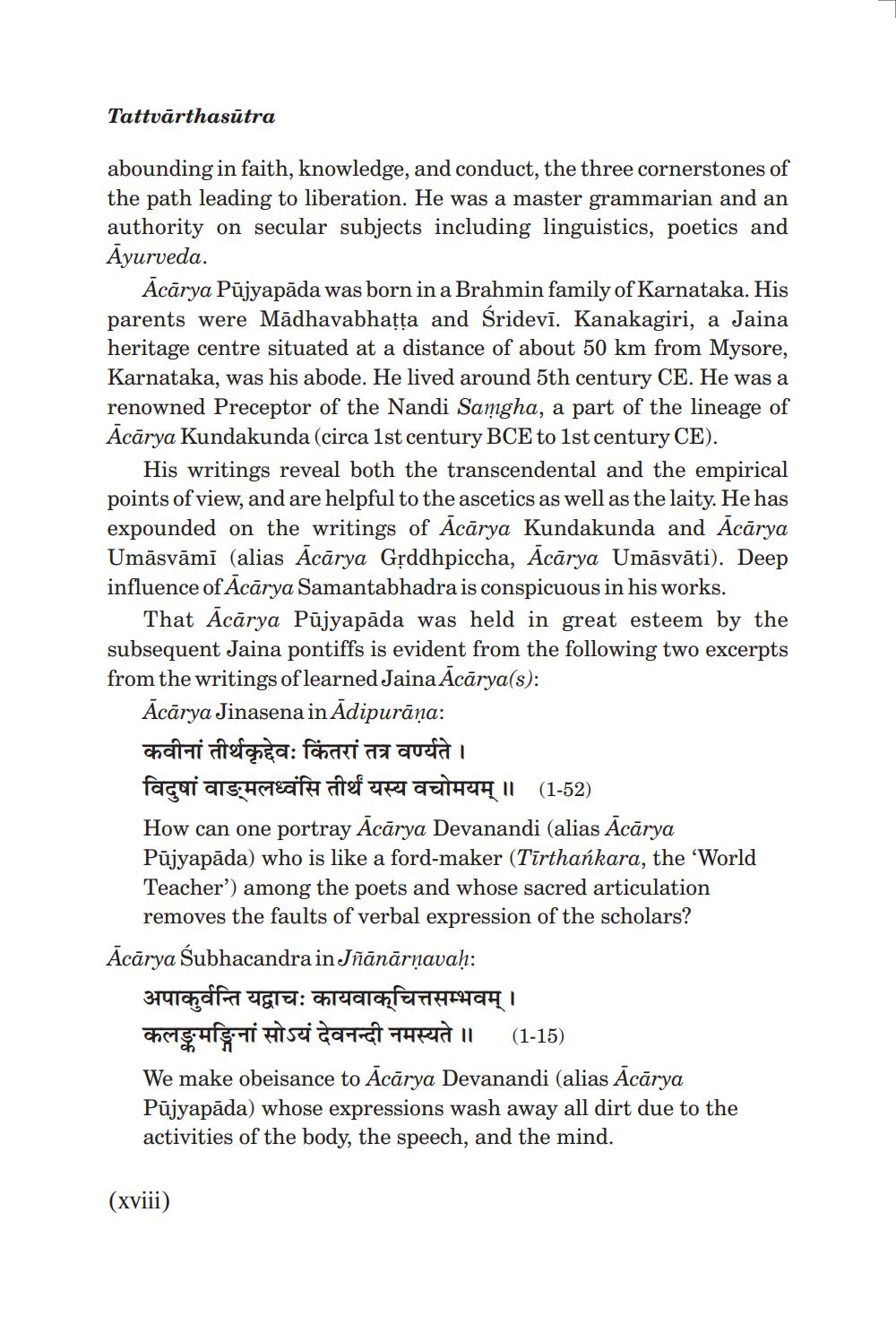________________
Tattvārthasūtra
abounding in faith, knowledge, and conduct, the three cornerstones of the path leading to liberation. He was a master grammarian and an authority on secular subjects including linguistics, poetics and Ayurveda
Ācārya Pūjyapāda was born in a Brahmin family of Karnataka. His parents were Mādhavabhatta and Sridevī. Kanakagiri, a Jaina heritage centre situated at a distance of about 50 km from Mysore, Karnataka, was his abode. He lived around 5th century CE. He was a renowned Preceptor of the Nandi Samgha, a part of the lineage of Ācārya Kundakunda (circa 1st century BCE to 1st century CE).
His writings reveal both the transcendental and the empirical points of view, and are helpful to the ascetics as well as the laity. He has expounded on the writings of Ācārya Kundakunda and Ācārya Umāsvāmī (alias Acārya Gțddhpiccha, Acārya Umāsvāti). Deep influence of Ācārya Samantabhadra is conspicuous in his works.
That Ācārya Pūjyapāda was held in great esteem by the subsequent Jaina pontiffs is evident from the following two excerpts from the writings of learned Jaina Ācārya(s):
Ācārya Jinasena in Adipurāņa: कवीनां तीर्थकृद्देवः किंतरां तत्र वर्ण्यते । fagat ats:hmecifa atef ze aa444 11 (1-52) How can one portray Ācārya Devanandi (alias Ācārya Pūjyapāda) who is like a ford-maker (Tīrthańkara, the World Teacher') among the poets and whose sacred articulation
removes the faults of verbal expression of the scholars? Ācārya Subhacandra in Jñānārņavaḥ:
अपाकुर्वन्ति यद्वाचः कायवाञ्चित्तसम्भवम् । Chris Hi-HT HIST Gant feleid (1-15) We make obeisance to Ācārya Devanandi (alias Ācārya Pūjyapāda) whose expressions wash away all dirt due to the activities of the body, the speech, and the mind.
(xviii)




